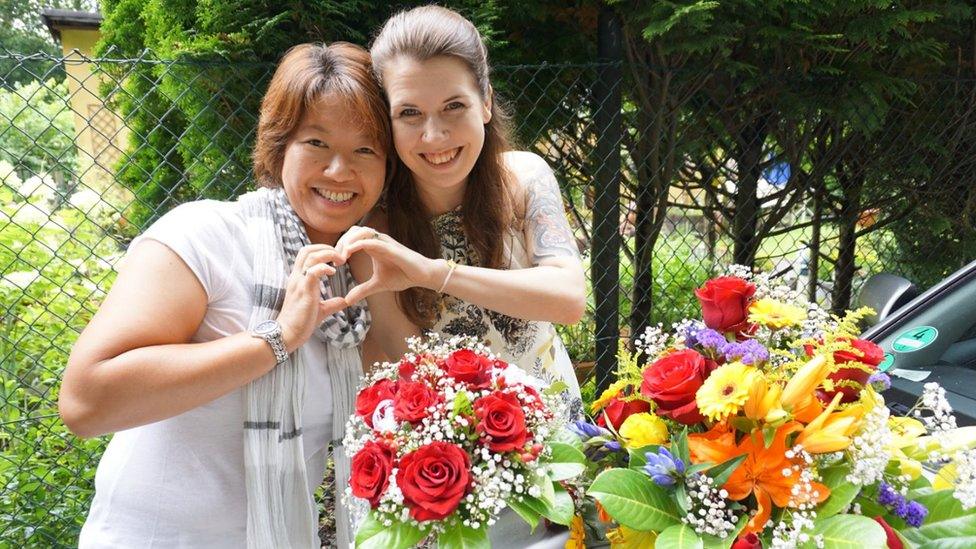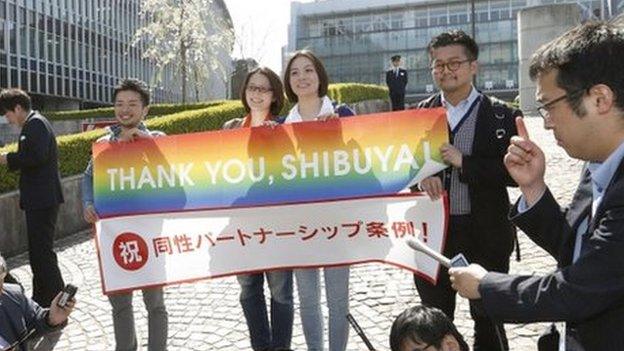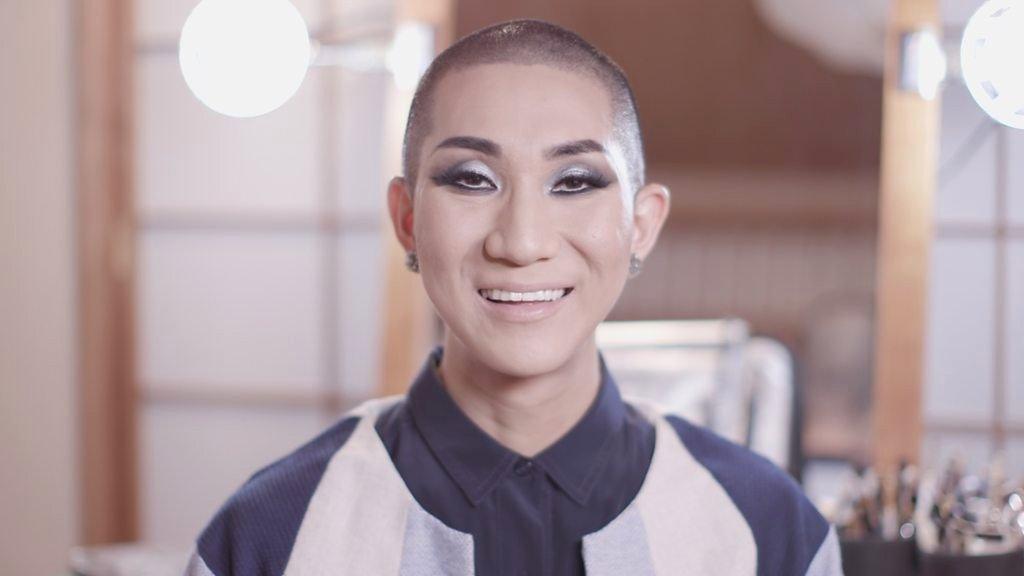Japan court finds same-sex marriage ban unconstitutional
- Published

Supporters in Sapporo holding a banner that reads "unconstitutional decision"
A district court in Japan has in a landmark decision ruled that the country's failure to recognise same-sex marriage is "unconstitutional".
Japan's constitution defines marriage as one between "both sexes".
But a Sapporo court ruled that this denied the couples constitutionally-guaranteed equality, in what is seen as a symbolic victory for LGBTQ activists.
Japan is the only country in the G7 group of developed nations that does not allow same-sex marriage.
The case was one of several brought to district courts in various parts of Japan by a group of same-sex couples who are seeking damages for mental suffering.
The Sapporo court rejected the compensation claim of one million yen ($9,000; £6,480) per person for being denied the same rights as heterosexual couples.
But it found that not allowing them to marry was unconstitutional.
Ai Nakajima, who was one of the original plaintiffs, told the BBC: "This is one huge step forward in Japan... We are moving closer to making our dream come true."
But there is still some way to go.
Even if all district courts declare same-sex unions constitutional, the legalisation of same-sex marriages is not guaranteed, as current political momentum to change the law is "lukewarm at best", according to The Japan Times.
Japan's constitution, put in place after the end of World War Two, defines marriage as one of "mutual consent between both sexes".
The government has said this means same-sex marriage was not "foreseen" at the time.
But lawyers for the plaintiffs said the phrasing was actually meant to prevent forced marriages, and that there is nothing in the constitution that explicitly prohibits gay marriage.
The court in Sapporo, the capital city of the northern Japanese island of Hokkaido, is the first to give its verdict, and its ruling is seen as having significant impact on the other courts.
Journalist and LGBTQ rights expert Yuji Kitamaru told the BBC the judgment was "well-crafted and very strategic" and laid "one of the first legal foundations against anti-LGBTQ theories".

'A triumph in itself'
Sakiko Shiraishi, BBC News, Japan
"Unconstitutional" - a single word so many have spent years fighting for.
In Japan, where peer pressure is high and emphasis is placed on fitting in, being a minority in any form is hard - especially when it comes to speaking out.
But this is changing - more people are recognising the importance of diversity.
Today marked a clear turning point. Though the court today rejected the compensation claim, many say it is a triumph in itself to achieve this landmark ruling.
Ryosuke Kunimi, one of the plaintiffs, said after the ruling, "The chief judge said that the discrimination based on the natural difference of sexuality is a violation of Article 14. I could not stop crying."
It is a victory - but the road ahead is still long.

Activists say conservative attitudes towards homosexuality remain, and many LGBTQ Japanese still do not dare to come out to their friends and family.
Since 2015, some cities have issued certificates for same-sex couples. But they are not legally binding and do not grant them equal rights to married couples, and merely call on businesses to accord equal treatment.
But recent polls have indicated that the majority of younger Japanese favour same-sex marriage.
Additional reporting by Tessa Wong.

You might also be interested in:
As a gay Japanese man, Kodo Nishimura, has found that Buddhism has accepted his sexuality.
Why this Buddhist monk also works as a make-up artist
Related topics
- Published14 February 2019

- Published31 March 2015

- Published5 March 2019
